| Article ID | Journal | Published Year | Pages | File Type |
|---|---|---|---|---|
| 894988 | Psychology of Sport and Exercise | 2006 | 19 Pages |
ObjectivesThis paper summarizes the fast-and-frugal-heuristics (FFH) approach to judgment and decision making, particularly as it applies to sports. The aim is to provide a framework through which current sports psychologists may apply this approach to better understand sports decision making.MethodsFFH are studied using a variety of methods, including (1) computer simulations and mathematical analysis of heuristic performance as it depends on environmental structure (what we call the ecological rationality of heuristics); (2) empirical analysis of the heuristics, performance in naturally occurring environments; and (3) experimental research examining whether people actually use the identified heuristics.ResultsSimulations and analysis have shown that FFH can perform as well as complicated optimizing models while using less information and without integrating this information. Furthermore, in many cases FFH are more robust than optimizing models, outperforming these models when generalizing to new cases.ConclusionFFH depart from many models of human decision making in that they set a reasonable standard of rationality based on real-world constraints such as (a) limited time, information, and cognitive capacity, (b) decision tasks that may have no calculable optimal solution, and (c) the structured environments within which humans have learned and evolved. These simple heuristics are particularly appropriate in the sports domain, in which athletes often must make rapid decisions—that may ultimately make the difference between success and failure—with limited information and divided attention.
